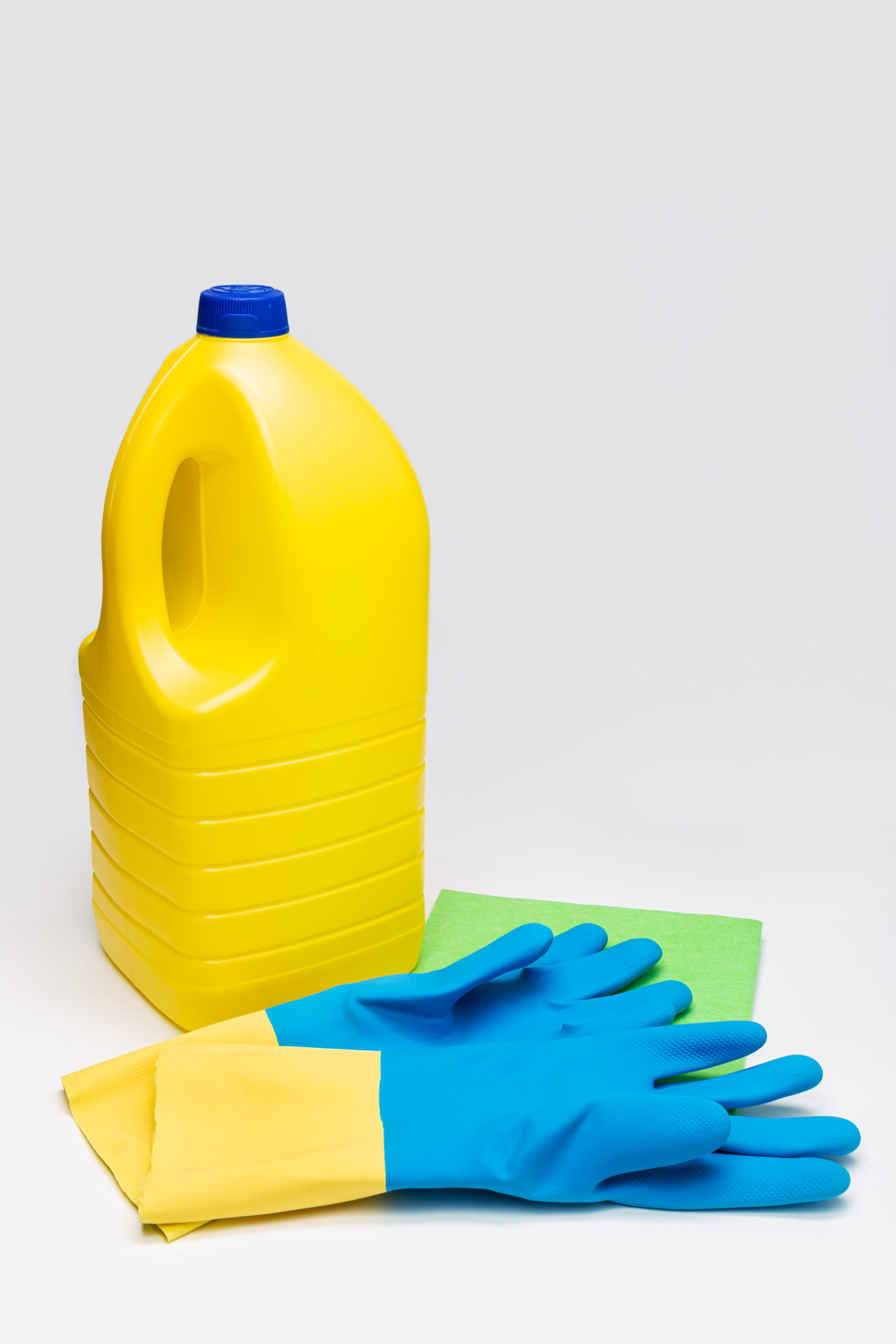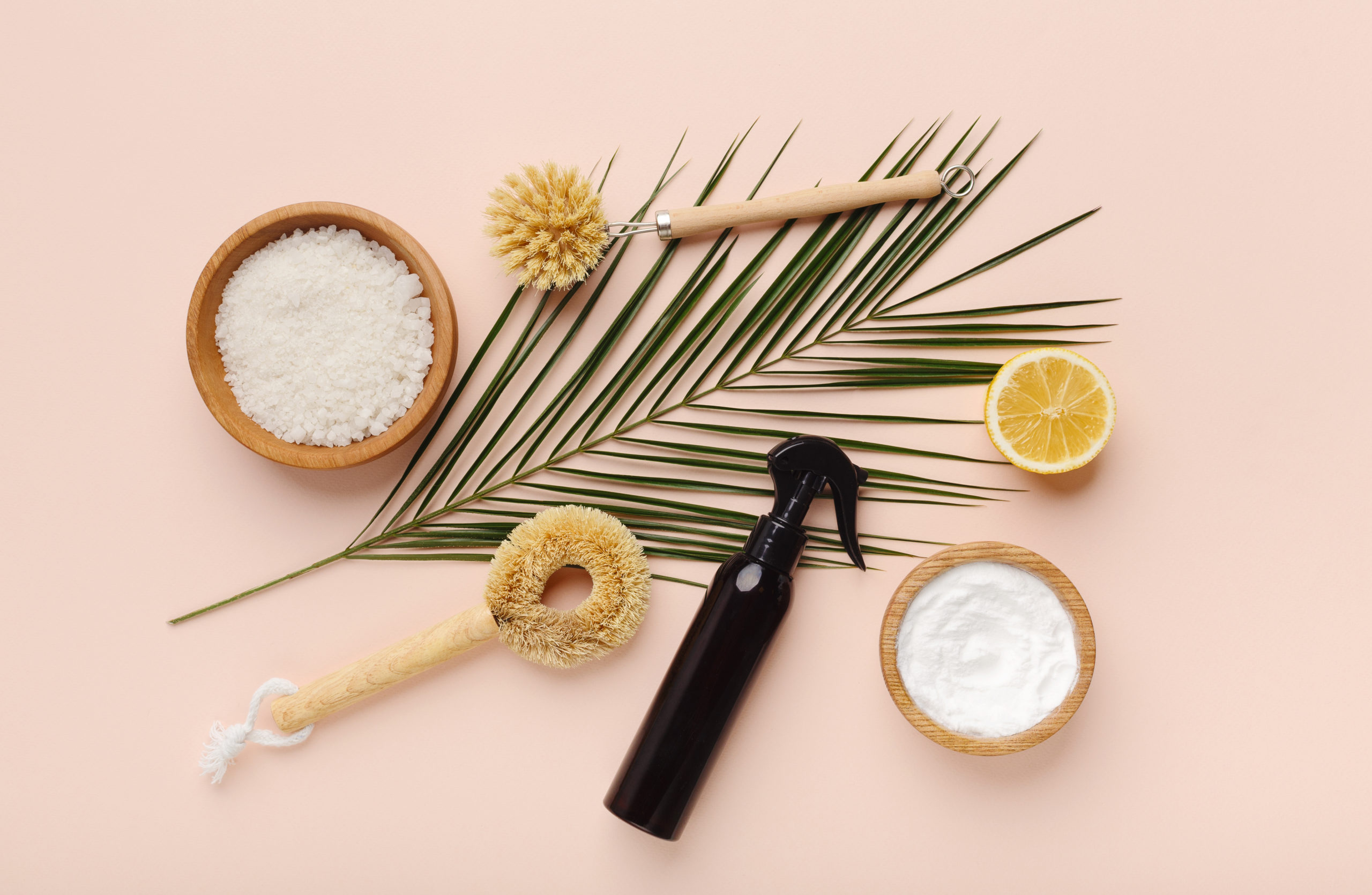
Why you should stop using bleach
Share: Facebook Pinterest LinkedIn When it comes to large-scale cleaning sessions, we tend to use chemical cleaning products that are either wrongly or rightly acclaimed

When it comes to large-scale cleaning sessions, we tend to use chemical cleaning products that are either wrongly or rightly acclaimed for their effectiveness. Most often, it’s bleach due to its ability to tackle stubborn stains and bacterial agents that dominate our cupboards. But beyond its supposed effectiveness, we also need to be aware of the impact of bleach on health and the environment every time it is used. Other than its well-known corrosive effect on the skin, you can find out the other reasons that should encourage you to ban bleach from your cleaning pack permanently.
Bleach, also known as hypochlorite, is a highly prized substance in households because of its decolorizing, whitening, and disinfecting properties. It is obtained from a mixture of sodium hypochlorite and water. Initially invented for purely medical purposes, bleach quickly became indispensable.
Bleach is very practical when disinfecting, whitening, or deodorizing a surface. And sometimes, it is used for water treatment thanks to the chlorine it contains.
But despite these more or less valuable purposes, bleach is one of the most dangerous substances for humans and the planet. It quickly attacks the body and can damage it, with the skin and respiratory system being the most exposed.
Bleach is primarily known for its abrasive (or corrosive) properties. This means that it can easily damage your skin as soon as it comes into contact with it. Its corrosiveness notably causes intense burns and lesions of the skin tissues. In addition, its infiltration through the superficial layers of the skin can cause swelling and edema.
Dr. Thuong Nhân Pham Thi, a pulmonologist and allergist, during the French TV show La Quotidienne on France 5, gives us more details about the negative impact of bleach on health. He says, « Bleach is a kind of pure acid, a bactericide, and so potentially it can injure our skin…».
When it comes into contact with the eye, it causes dangerous irritations, the extent of which varies according to the concentration of the product.
Please don’t risk the well-being of your skin by trying to protect it with gloves. It is better to put it away in your cupboard definitively. This weaning may be difficult at first, but with the rise of ecological detergents, we quickly get used to it. Baking soda, montmorillonite, or lemon juice are a few natural cleaners whose effectiveness matches bleach.
One of the dangers of using bleach is the damage it can cause to the respiratory system. It “can injure your respiratory tract from the nose to the bronchi as well as the eyes,” Dr. Thuong continued on the set of France 5.
In reality, inhaling the odor released by this substance can cause terrible headaches, nausea, and dangerous respiratory reactions. In the process, the gas directly attacks the bronchi and creates inflammation or chronic bronchitis.
Breathing in the smell of bleach for a long time can also induce feelings of breathlessness or suffocation: this is because the oxygen in your blood drastically decreases. Therefore, it is strongly advised not to use it for people with asthma; bleach’s impact on health can worsen their situation and create acute respiratory problems.
At the same time, mixing bleach with chemical compounds containing ammonia (urine) or white vinegar is strictly forbidden. This kind of mixture releases toxic gases (chloramine and dichlorine, for example) capable of destroying the lungs and suddenly causing death. Please avoid bringing hypochlorite near the toilet bowl.
Moreover, accidentally ingesting bleach directly attacks the esophagus, stomach, and entire gut. This kind of incident happens very often with children. So here’s an apparent reason for couples still raising young children to separate themselves from bleach permanently.
Hypochlorite, because of its non-biodegradable properties, is a product that is harmful to the environment. The chlorine in it is a very toxic substance because it kills bacteria at the base of the degradation of organic matter in the terrestrial ecosystem. Bleach and bleach concentrate extracts oxidize all organic matter they come into contact with.
When released into nature, chlorine ends up in the atmosphere, which combines with other compounds in the air. The result is greenhouse gases that destroy the ozone layer and lead to global warming. The product also affects fauna (terrestrial and aquatic), seriously harming the global ecosystem.
The incineration of organic materials containing bleach (or traces of this product) should be avoided because of the risk of producing organochlorines such as furans and dioxins. Packaging containing this substance should therefore be taken to specific collection points.
It is quite possible to do without bleach for a healthy and clean daily life. Ecological cleaners are now highly appreciated for their ability to get rid of dirt and restore the desired shine to your utensils. The products “eau de Maison” are part of them.
Our three formulations, Boscus, Aromata, and Agrumea, are natural products without controversial materials that allow easy cleaning of the surfaces for which each was created without leaving traces and without rinsing.
In addition, essential oils (tea tree, oregano, lemon, aspic lavender…) are very effective in purifying your home and removing pathogenic and bacterial agents. They have bactericidal, virucidal, and fungicidal properties, making them perfect substitutes for classic deodorants.
White vinegar helps remove limescale from taps or bathtubs. Lemon comes in addition to providing a fresh scent while eliminating foul odors.
For toilet cleaning, you can use baking soda from now on, which is an excellent anti-limescale. Black soap, on the other hand, is ideal for dishwashing sessions.
For laundry, Marseille soap is recommended to revive the colors of your dull clothes. Whether by hand or by machine, it guarantees a satisfactory result. And if you are dealing with a filthy white sheet, accompany it with soda crystals or sorrel salt for washing.
In short, bleach has good cleaning properties. But as it represents a danger for the user and the environment, it is wise to stop using it. It is better to turn to natural detergents that are harmless to health and the environment. In addition to providing the same performance level as hypochlorite, they are entirely free of consequences.

Share: Facebook Pinterest LinkedIn When it comes to large-scale cleaning sessions, we tend to use chemical cleaning products that are either wrongly or rightly acclaimed

Share: Facebook Pinterest LinkedIn Are you looking for a way to clean your home naturally, without using harsh chemicals? Running out of ideas for natural

Share: Facebook Pinterest LinkedIn Are you looking for a way to clean your bathroom naturally, without using harsh chemicals? If yes, you’ll love these natural